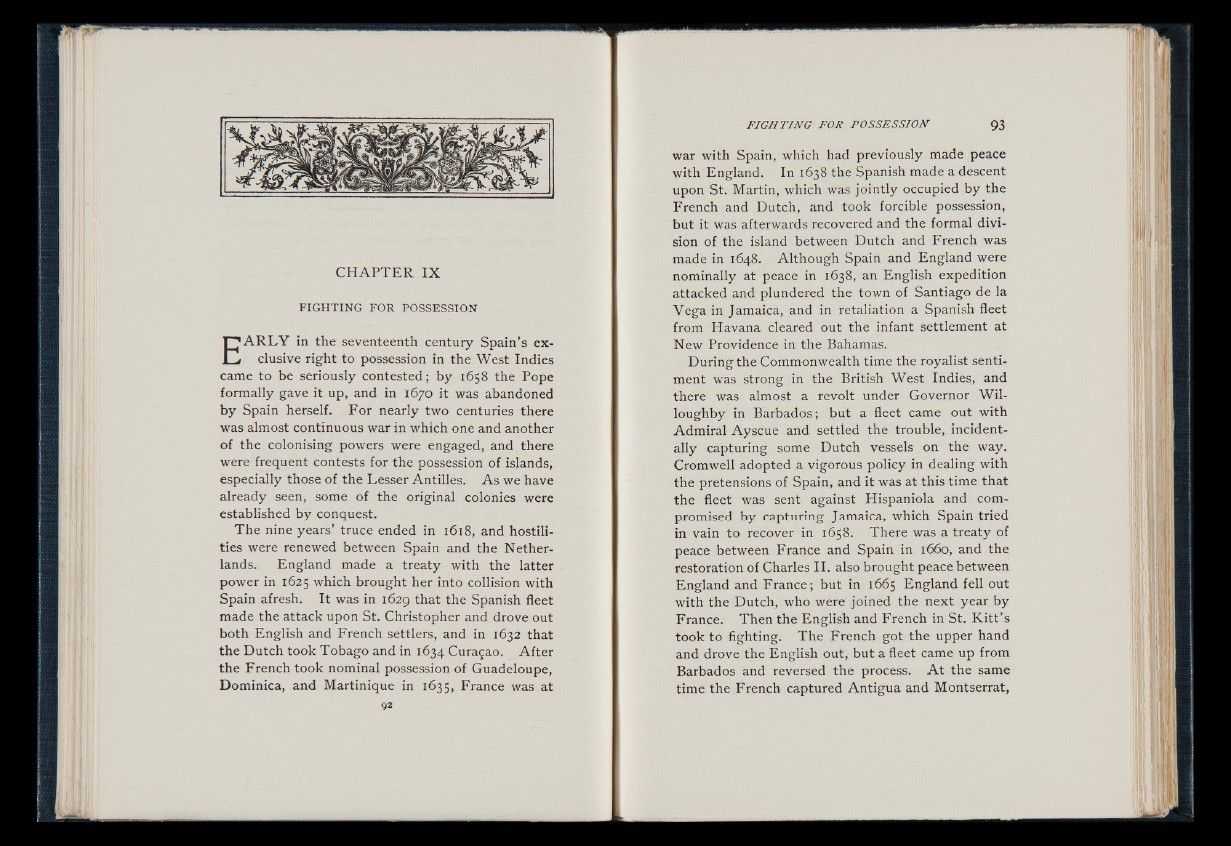
C H A P T E R IX
FIGHTING FOR POSSESSION
EA R L Y in the seventeenth century Spain’s e x clusive
right to possession in the West Indies
came to be seriously contested ; b y 1658 the Pope
formally gave it up, and in 1670 it was abandoned
by Spain herself. For nearly two centuries there
was almost continuous war in which one and another
of the colonising powers were engaged, and there
were frequent contests for the possession of islands,
especially those of the Lesser Antilles. A s we have
already seen, some of the original colonies were
established by conquest.
T h e nine years’ truce ended in 1618, and hostilities
were renewed between Spain and the Netherlands.
England made a treaty with the latter
power in 1625 which brought her into collision with
Spain afresh. I t was in 1629 that the Spanish fleet
made the attack upon St. Christopher and drove out
both English and French settlers, and in 1632 that
the Dutch took Tobago and in 1634 Curaçao. A fte r
the French took nominal possession of Guadeloupe,
Dominica, and Martinique in 1635, France was at
92
war with Spain, which had previously made peace
with England. In 1638 the Spanish made a descent
upon St. Martin, which was jointly occupied by the
French and Dutch, and took forcible possession,
but it was afterwards recovered and the formal division
of the island between Dutch and French was
made in 1648. Although Spain and England were
nominally at peace in 1638, an English expedition
attacked and plundered the town of Santiago de la
V eg a in Jamaica, and in retaliation a Spanish fleet
from Havana cleared out the infant settlement at
New Providence in the Bahamas.
During the Commonwealth time the royalist sentiment
was strong in the British West Indies, and
there was almost a revolt under Governor W illoughby
in Barbados; but a fleet came out with
Admiral Ay scu e and settled the trouble, incidentally
capturing some Dutch vessels on the way.
Cromwell adopted a vigorous policy in dealing with
the pretensions of Spain, and it was at this time that
the fleet was sent against Hispaniola and compromised
by capturing Jamaica, which Spain tried
in vain to recover in 1658. There was a treaty of
peace between France and Spain in 1660, and the
restoration of Charles II. also brought peace between
England and France; but in 1665 England fell out
with the Dutch, who were joined the next year by
France. Then the English and French in St. K i t t ’s
took to fighting. The French got the upper hand
and drove the English out, but a fleet came up from
Barbados and reversed the process. A t the same
time the French captured An tigua and Montserrat,